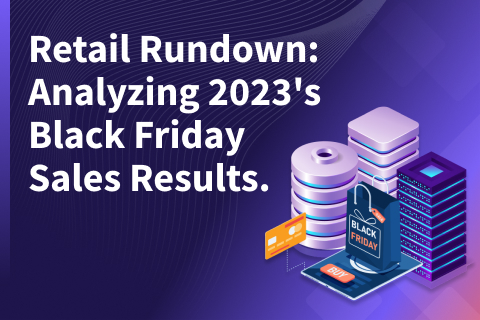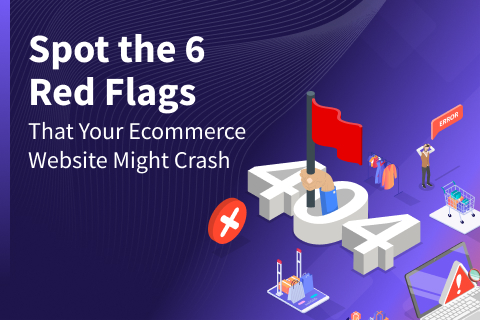Zero Downtime: Meeting 2025 Retail Traffic Spikes
Providing an excellent online customer experience is essential all year round, but during the holiday season, it’s even more important to deliver seamless support and a rock-solid online shopping experience. As millions of consumers start to tick off their annual shopping lists, traffic volumes surge. This can quickly create headaches for retailers working with legacy systems that were not built to support sudden traffic increases.
Online retail shopping reached a new all-time high in 2024, and records are expected to be smashed again this year. A frozen application, delayed online checkout, or transactional inaccuracy will quickly turn customers off and drive them to competitors in the hope of a more reliable and stable service. At the heart of every retail application is data. For many retailers trying to keep up, database modernization is essential for both survival and success.
This blog examines the 2024 holiday shopping season, what we can learn from it, and how your database impacts performance and customer experiences. We’ll also cover some top strategies to deliver a successful shopping experience this year.
Three Retail Shopping Trends
Volume Versus Scaling
In 2024, Global online retail sales reached a record $1.2 trillion, with all-time highs in online and mobile transactions. For retailers running their applications on single-server, monolithic architectures, keeping pace with growing online shopping demands can be challenging. A spike in volume can quickly lead to slower processing times or outages, ultimately resulting in increased abandoned carts and costly revenue losses during critical sales periods.
To build long-term success, it’s critical to adopt a database that can provide horizontal scaling with automatic sharding, while maintaining ACID compliance. Ideally, one that allows you to scale up and down on demand and only pay for what you need.
YugabyteDB can seamlessly handle millions of transactions per second with automatic sharding, supporting everything from retail events to seasonal peaks while scaling down during quiet periods to optimize costs.
The Rise of Agentic AI
AI agents are fast reshaping the retail landscape. Over the past year, the retail industry experienced a dramatic increase in AI and agent usage, both on their own websites and as consumers turn to AI assistants to find the best deals and personalized product recommendations. 30% of consumers state they will use AI tools to find deals, search for products, and check reviews.
Agent-to-agent commerce will redefine how consumers find, compare, and buy products, rewarding retailers that make their data accessible, build trusted AI experiences, and use insights from agent interactions to drive smarter, more personalized engagement.
For retailers, AI agents can optimize inventory, pricing, supply chains, and customer service through automation and predictive insights, while empowering employees with real-time data and personalized tools. Consumers, in turn, benefit from the emergence of AI shopping assistance, designed to simplify product discovery and purchasing. AI can tailor recommendations based on preferred features, budget, and other relevant factors.
YugabyteDB provides an AI-ready architecture with native vector search capabilities. When implemented in a RAG architecture, retailers can deliver personalized recommendations, conversational shopping assistants, and intelligent search experiences while maintaining transactional data consistency and ultra-resilient performance at scale.
Online Shopping is Number One
The Retail Dive’s trendline report on 2025 holiday shopping expectations states that over 70% of consumers are expected to complete their shopping online. This means the appearance, performance, and reliability of your website and related applications are crucial.
YugabyteDB’s ultra-resilient architecture delivers “always-on” customer experiences, effortless scale for growing business demands, and elastic scalability for demand spikes. This enables retail companies to maximize revenue during peak periods, accelerate omnichannel innovation, and scale globally through a distributed PostgreSQL architecture.
Overcoming Operational Challenges
The online retail market is not slowing down anytime soon. While increasing sales and growing market share remain a priority for retailers, it is accompanied by technical and operational challenges, as legacy solutions and outdated systems struggle to keep pace with modern customer and business demands.
Peak traffic events are also accompanied by bot traffic, fraud attempts, and skyrocketing customer service requests.
Organizations relying on legacy databases often encounter architectural constraints as website traffic increases, resulting in slower processing times and increased application downtime, lags, or even crashes. The cost of downtime continues to spike year-round, with the average cost per hour exceeding $300,000 for more than 90% of organizations.
Modern shoppers expect a frictionless checkout, fast loading times, and synchronized inventory across regions. More than half of shoppers are reported to abandon a site after a single poor experience, and the global cart abandonment rate reached over 70% in 2024. If you can’t deliver the required user experience, customers will quickly turn to more reliable and secure retailers.
So, what is your organization’s strategy if your retail site doesn’t meet expectations during the most critical shopping period of the year?
How to Deliver Resilient, Scalable, Low-Latency Retail Applications
To successfully deliver fast, resilient, scalable, and secure applications during peak holiday events (and all year-round), retailers should consider a modern, AI-ready, multi-regional database architecture.
YugabyteDB enables elastic scalability, high availability, and ultra-low latency, ensuring zero downtime during peak retail periods:
- AI-Driven Personalization: Retailers can leverage vector search and AI-driven recommendations to deliver personalized product suggestions, dynamic pricing, and tailored promotions in real-time.
- Monitoring, Observability, and Automation: YugabyteDB Perf Advisor monitors query patterns and system usage to proactively identify bottlenecks, ensuring applications maintain peak performance during traffic surges. It provides real-time monitoring, alerting, auto-scaling, self-healing clusters, and automated failover to prevent minor issues from becoming revenue-impacting outages.
- Transactional Accuracy: With real-time inventory and supply chain visibility, you can ensure your data is accurate and correct across warehouses, stores, and online channels, to prevent over or underselling.
- Always-on, Secure, and Compliant: Distributed, multi-region deployments can prevent total outages if a single region fails. The data is kept close to its region to comply with local regulations, such as GDPR/CCPA, and efficiently protect customer data.
- Seamless Customer Experience: With 99.99% uptime, ultra-low latency, and ultra-resilience, you can deliver frictionless, consistent, and synchronized experiences for consumers as they move between devices, channels, and touchpoints.
Conclusion
Insights from the 2024 holiday season provide a clear view into how quickly consumer shopping expectations are evolving. The shift from in-store to online accelerated further, with AI and digital agents playing a growing role in shaping personalized experiences.
Future retail success hinges on building resilient, scalable, and low-latency applications that can seamlessly handle traffic surges while supporting intelligent, frictionless customer experiences.
Single-server, monolithic database applications struggle to keep up with modern demands, making it essential that modern retailers quickly adjust their operational strategies and consider adopting an AI-ready, distributed SQL database that delivers zero downtime, regional compliance, and always-on customer experience at scale.
If you’d like to find out how you can benefit from AI-ready, multi-modal, distributed, PostgreSQL-compatible YugabyteDB, contact our experts, who will be pleased to discuss your specific use case.
Want to know more about building GenAI retail apps on a PostgreSQL-compatible database? Download our solution brief for basic AI concepts, architectural considerations, and access to hands-on tutorials.


